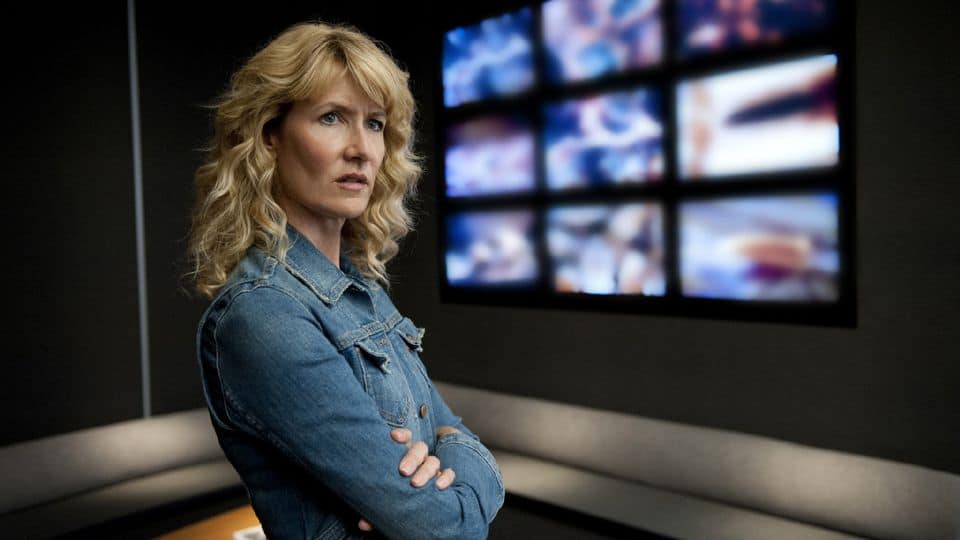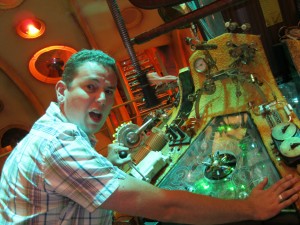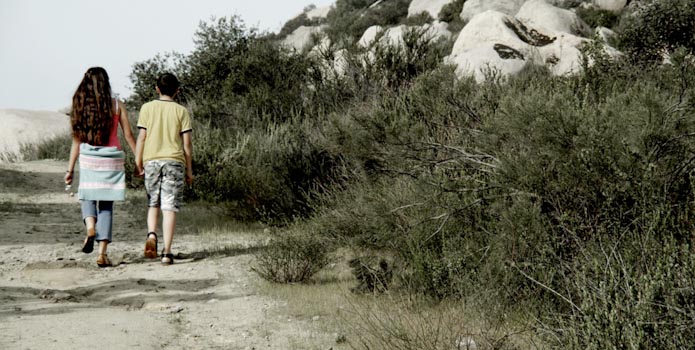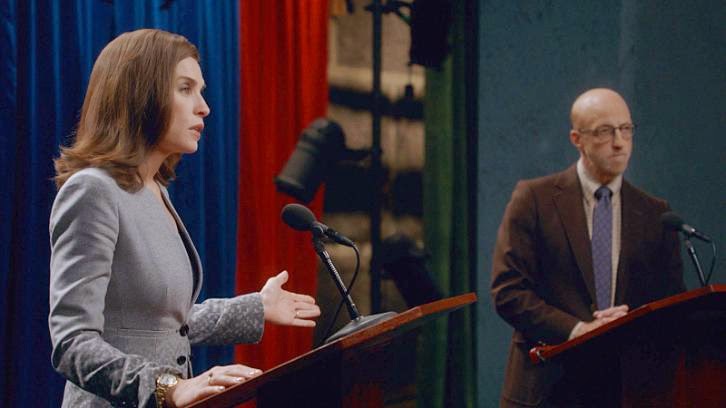
Thanks to premium streaming services and fresh content providers like Netflix, dead ain’t dead no more – at least, not in the world of television. They’ve already given Arrested Development a new lease on life (if not to the sort of acclaim that it once enjoyed), and Gilmore Girls is on its way back in the form of a limited series. Because of Netflix‘s business model, new acquisitions don’t necessarily need to attract a huge number of viewers on their own – the goal is simply to amass as many subscribers as possible. That’s why they can afford to revive cult series – passionate fans will pony up for a subscription just for the privilege of getting access to that one series.
But even with that in mind, some great series are probably still very, very dead – and likely to stay that way.
Lone Star
What is it?
Even by the standards of other “brilliant but canceled” series, 2010’s Lone Star stands out. Kyle Killen’s (Awake, Mind Games) quietly ambitious drama starred the now-ubiquitous James Wolk (Mad Men‘s Bob Benson) as an ultra-charismatic conman living a complex, fraught double life. Wolk is so good as a reluctant crook that he’s tough to entirely loathe, even as he helps to commit fraud on a massive scale at the behest of his black-hearted pops (David Keith). The pilot establishes some compelling personal stakes very quickly, and Wolk’s episode-ending declaration that he’s in love with both of the women in his life (Adrianne Palicki and Eloise Mumford) has yet to be matched for audacity on network TV. Still, it’s tough to shake the feeling that this is simply too high-wire a concept to work as a series – that is, until you watch the second episode, “One In Every Family,” which manages to be every bit the equal of the pilot, proving that the concept had legs. Alas, the ratings were so toxic that two episodes was all it got. (IMDb lists another five, so it seems likely plenty more were completed, only to be shelved.)
Why does it deserve to come back?
Anyone who’s watched those two episodes can tell you that Lone Star belongs on any list of the best network pilots of the last decade, and James Wolk still deserves a vehicle worthy of his talents. (Sight unseen, I’m guessing that’s not Zoo.) Most importantly, the tense, fast-paced storytelling and compelling moral quandaries would make it an excellent candidate for couch-gripping Netflix binge-watching.
Why won’t it?
Series creator Kyle Killen tried the network TV thing a couple more times, with mixed success (Awake managed to air one entire, gloriously loopy season on NBC, while the so-so Mind Games made it to 10 episodes), and seems to be taking a break from the whole series television thing. (Can you blame him?) More importantly, there’s no precedent for Netflix reviving a series that failed this hard. Lone Star wasn’t even seen by enough people to make up a cult audience. Netflix has stated that not everything they produce is intended for a wide audience, but they still want, y’know, an audience.
Terriers
What is it?
One of the last few years’ most beloved one-season wonders, Terriers starred Donal Logue (Gotham) and Michael Raymond-James (True Blood) as PIs working to keep San Diego weird. While the concept is nothing special on its face – one’s an ex-cop and recovering alcoholic, the other used to be a petty thief! – but series creator Ted Griffin’s clear knowledge of detective-story tropes, paired with a desire to subvert those tropes with whip-smart storytelling and careful characterization, made it a pre-emptive corrective to the tirelessly self-serious detective shows that we still see way too many of. Oh, and it managed to feature exes and current partners (Kimberly Quinn and Laura Allen) who actually felt like three-dimensional humans as opposed to male-motivation engines – a rarity for the genre, and still not a given for the medium in general.
Why does it deserve to come back?
Sure, Donal Logue is getting a steady network paycheck on Gotham, but he was most at home with the combination of smart-aleck one-liners and quiet grief on Terriers, and Michael Raymond-James, every bit his equal, deserves better than one-off roles on The Walking Dead. More than that, though, the series did an incredible job in its one season of establishing its fictionalized Ocean Beach setting as a place worth living in and dying for.
Why won’t it?
See the Lone Star explanation re: sheer obscurity. Also, I already mentioned that Logue is making network-lead money now, yes?
Alphas
What is it?
Presaging the era in which superheroes were all over our TVs on the regular, Alphas ran for two seasons on SyFy, chronicling the adventures of a motley crew of enhanced humans brought together to – what else? – fight crime, with the help of a wizened mentor (David Strathairn). If that sounds an awful lot like X-Men, that’s not an accident – the series was created by Zak Penn, who co-wrote two of the X-Men movies, as well as earning a story credit for the first Avengers.
Why does it deserve to come back?
As befits a series created by someone familiar with the ins and outs of mainstream superhero storytelling, Alphas managed to feel like both a tribute and a riposte to the near-universal story and character beats that tend to litter these stories, with its genuinely diverse cast and edgier-than-expected storytelling working overtime to distinguish themselves. While its big-picture storytelling sometimes faltered, especially in its second season, it deserves a lot of credit for injecting genuine surprise into a seemingly stale concept. Much of that surprise comes from the characters and performances, especially Ryan Cartwright as the telekinetic – and autistic – Gary, and Azita Ghanizada’s hypersensitive Rachel, a character with no real corollary on similar series.
Why won’t it?
Netflix is in the Marvel Cinematic Universe business and probably doesn’t want to complicate that by bringing in more superpowered folk.
The Fades
What is it?
An apocalyptic UK thriller with a seriously demented streak, The Fades starred Ian de Caestecker (now better known as Fitz on Agents of SHIELD) as a nervy young man with the ability to see the remnants of the dead (aka the Fades). That would be bad enough on its own, but it turns out that his ability marks him as an Angelic, one who is destined to take a pivotal role in a potentially world-ending conflict. That’s a lot to take in for a literal bedwetting pacifist.
Why does it deserve to come back?
The Fades felt like it was still working itself out when it got the axe after a single six-episode series, but its growing pains were more compelling than most series’ settled forms. Suffused with humor, heart, and a sumptuous, gothic atmosphere worthy of a Sandman comic, The Fades was utterly unique, even when it didn’t totally work. Most series that death with the afterlife and the apocalypse tease the audience about just how bad things might get – The Fades wasn’t nearly that skittish. If nothing else, it boasted the greatest “previously on” segments in TV history, courtesy of the Mac’s (Daniel Kaluuya) spirited recaps.
Why won’t it?
Once again, its lead has been snapped up into a network-TV comfort zone he’s unlikely to be wrested from anytime soon, and series creator Jack Thorne is keeping plenty busy with a host of other projects. Not helping matters is the fact that Netflix hasn’t ordered anything even vaguely like it.
Enlightened
What is it?
Amy Jellicoe (Laura Dern) just wants to do the right thing. Why is it so danged difficult? It’s hard to know what’s right when your employers are corrupt pharmaceutical peddlers and everyone in your life has told you you’re insane, thanks to one little episode… This critically adored but commercially dead-in-the-water existential dramedy from creator and sole writer Mike White wasn’t so much interested in “story” as it was in the intersection of self-interest and public interest, happiness and myopia, passion and mania. Along with the inestimable Dern, Enlightened boasted Luke Wilson, Diane Ladd, Molly Shannon, Dermot Mulroney, alongside White himself.
Why does it deserve to come back?
The “don’t cancel Enlightened!” chorus was small but passionate even before the second season had finished airing, but it was clear that, to some degree, HBO’s hands were tied: unlike Netflix, they can’t really afford series no one’s watching. That’s doubly tragic because the period since its cancellation has made it clear that there still really isn’t anything else quite like it.
Why won’t it?
Netflix seems to prefer their acquisitions and new series to be a little “stickier” in premise, and “fortysomething woman tries to find the right path in a corrupt universe”probably doesn’t qualify. More to the point, it’s difficult to imagine HBO *ever* letting one of its properties go to Netflix, even one of its castoffs.
On Death Row
What is it?
Werner Herzog’s riveting four-part miniseries aired in 2012, and if you saw it then, it’s likely you still haven’t forgotten it. Produced in conjunction with his equally stunning feature doc Into the Abyss, On Death Row ran with the idea that having Herzog sit in death-row visiting rooms conducting interviews with inmates through glass would provide ample material – and it was right. On Death Row is proof of the old adage that great art often comes from constraint – Herzog generally only had very brief periods to conduct these interviews, so he had to make them count. The rest of the episodes – heavy on internal police footage and Herzog’s reliably bruising interviews with people affected by the case – often managed to match those one-on-ones for intensity.
Why does it deserve to come back?
There’s only one Werner Herzog, but there are about 3,000 people on death row in the United States, and guilty or not, each one has a story. The beauty of On Death Row is that the potency of its episodes doesn’t depend on guilt or innocence, nor on the presence or absence of a labyrinthine mystery, merely on Herzog’s indefatigable sense of curiosity and humanity. Moreover, Netflix has had tremendous success with Making a Murderer, so it seems like an influx of true-crime content could only be a win for them.
Why won’t it?
Herzog’s got a full plate, with a new doc coming soon and a narrative feature still to be released, and his last attempt to put together a TV doc series (Hate in America, which would have looked at racial-hate groups) fell apart somewhere along the line, so he may be done with the format altogether for now.
Brass Eye
What is it?
Before The Daily Show became synonymous with the satirical-news format, there was Chris Morris’ The Day Today, which he co-created with Armando Iannucci way back in 1994. Morris’ experience in radio newsrooms made him uniquely qualified to pick on the absurdities of newsreading, but it was his merciless sense of humor and his love of the surreal that made its 1996 follow-up series, Brass Eye, one of the most purely funny ever created. Each episode was themed after a social ill (“Drugs,” “Sex,” “Crime”), and the series’ complex pranks frequently had UK celebrities and politicians duped into supporting seemingly righteous causes in the most asinine or outright offensive ways possible.
Why does it deserve to come back?
Brass Eye already staged one comeback – in 2001, it aired a one-off hourlong special called “Paedogeddon!” that was every bit as wonderful and wrong as its title suggests – and Morris’ pitch-black comedy of (t)errors Four Lions suggests he hasn’t lost a step in the intervening years. Plus, it’s not as though we’ve run out of moral panics to get all in a tizzy over.
Why won’t it?
Brass Eye‘s particular brand of satire might be a little too UK-centric for the globally-minded Netflix.
Slings and Arrows
What is it?
Canada has produced a lot of great movies – most of them Quebecois – but I’ll be the first to admit that our TV record is a little spotty. One total success? Slings and Arrows, a very Canadian story about a theater troupe’s efforts to tackle Shakespeare with integrity, while corporate influence looms large. It aired three seasons on The Movie Network in the mid-00s, each built around a different Shakespeare play and production.
Why does it deserve to come back?
Slings is probably the toughest sell on this list – not only because it’s a Canadian series about freaking theatre, but because those who have seen and love it will tell you that it tells a perfectly arc’ed three-act story just as it is – why tinker with a good thing? Hooey. Part of the joy of Slings and Arrows was its shaggy take on the life-art intersection, and the ways in which works take on new forms when seen in a fresh light. A fourth season (Julius Caesar, perhaps?) could provide a great meta take on artists who had a perfect curtain call, but can’t help but stick around to keep strutting their stuff. More to the point, all the major players – Paul Gross, Mark McKinney, Martha Burns, Stephen Ouimette – are still kicking around and working.
Why won’t it?
As aforementioned, Slings isn’t a very sexy elevator pitch, and Paul Gross seems to be more interested in directing CanCon war movies these days.
Wonder Showzen
What is it?
A hallucinogenic parody of childrens’ television, Wonder Showzen was a hybrid of sketch series, animated comedy, and Standards and Practices nightmare. Originally aired on MTV2, of all places, Showzen spent about a third of its runtime chronicling the adventures of a hapless gang of puppets, another third on sketches co-hosted by the same puppets and some adorable tots (a la Sesame Street, except with more references to genocide and racism), and the last third on assorted one-off and recurring segments. You’ll know if you’d be into it based on your reaction to the following installment of “Beat Kids,” in which a little redheaded moppet dresses up as “Lil’ Dead Pope” and asks passers-by if they think he’s going to hell:
Why does it deserve to come back?
Netflix has a pretty diverse slate of original series, but it doesn’t really have any original programming to cater exclusively to the stoned-at-3am crowd, which seems like a significant Netflix demographic to ignore.
Why won’t it?
The world wasn’t ready for a fake children’s show that was openly hateful towards basically all facets of polite Western society back in the ’00s, and I suspect it’s not exactly clamoring for it now, either – though it should be.
A Touch of Cloth
What is it?
If you know the name Charlie Brooker, it’s likely because of his genre anthology series Black Mirror, which was recently picked up for a generous episode order by, yes, Netflix. Brooker’s had a hand in quite a few other series, though, and by my estimation, the best and most ripe for revival is A Touch of Cloth. Starring John Hannah as the titular detective, Cloth is an hourlong comedy (now there’s a rare beast) that sends up the tortured-detective genre with perhaps the highest gag-per-minute ratio in TV history. Production-design gags, costuming gags, music-cue gags, character naming gags…hell, even the intro is one long gag. Oh, and Karen Gillan is in the third series!
Why does it deserve to come back?
While Cloth was clearly devised as a counterpoint to the frankly insane number of detective series Britain has churned out over the decades (usually featuring some groanworthy play on the always-embittered lead detective’s last name), we’ve all seen enough “gritty” cop shows for several lifetimes, so there’s really no geographical disadvantage at play here. With Edgar Wright out of the TV game, we’re short on metatextual genre play that’s actually funny, and Cloth was reliably so, though it was just as indebted to the Zucker Bros. school of “pile in as many jokes as humanly possible and see what sticks.”
Why won’t it?
Brooker’s probably a little bit tied up with that whole Black Mirror thing.




